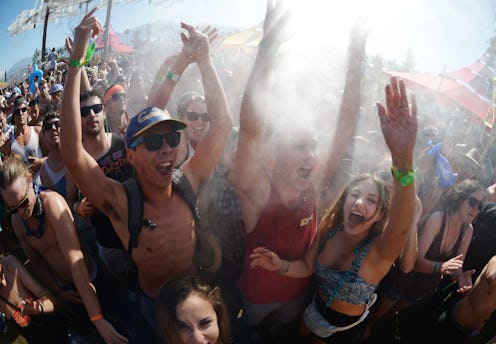Life
Do You Suffer From FOGO (Fear Of Going Out)?
Are you still experiencing a ton of social media-induced "fear of missing out" (FOMO)? If so, then you need to get with the times, because by now you're likely to have FOGO, a "fear of going out," instead. Once again, our social human brains (and emotions) find themselves no match for an evolutionarily-novel environment, and we aren't quite sure how to deal with it. But don't let FOMO's counterpart FOGO make you miserable!
Apparently coined by Alexis Swerdloff, writing in New York Magazine, the term "FOGO" refers to the feeling that attending the events that everyone else is posting about often seems much more daunting than appealing. Though it doesn't keep me up at night, I realized that I, too, had probably felt FOGO once or twice in recent years — about a Twitter's friend's birthday, perhaps. I might have been inflicting FOGO on others with my house parties, too (oops).
Upon reflection, FOGO is clearly related to the now reasonably well-established truth that, while participating on social media can make people feel happier, lurking on social media makes users less happy — regardless of whether or not they're participating in the event being discussed, apparently. On Facebook, FOMO is easy enough to fix by participating in friends' threads on substantive articles, congratulating them on recent successes, sending private messages, and wishing them happy birthdays. But FOGO seems to live more on Instagram, where all you can really do is passively consume the visual content of others, especially strangers and distant acquaintances, who may or may not have even the slightest reciprocal interest in you. And after you see your eight millionth photo of the Ferris Wheel and crowds at Coachella on Instagram, you may very well be content to never leave your house again.
But how exactly are you supposed to stop lurking and become more active on Instagram — by posting comments to the glamorous party-goers' pics while they're still there, asking them questions about it or something? I don't think so. It's even worse in the case of acquaintances, who may think from your interest that you're trying to invite yourself to the next event, or guilt them for not having invited you to this one.
Viewing pictures of events also encourages you to focus on all the fun and sexy parts of the event, without giving the less glamorous parts a second thought. Those SXSW, Coachella, and Burning Man attendees all spent a pretty penny and more than a few nerves even getting to their events, and are probably waiting in line for the bathroom as we speak. You're also invited to believe that those partiers are going maximally hard all night long, but that may or may not be the truth. Maybe if you had attended, you would have turned in early, just like all of your acquaintances did.
At the end of the day, while humans are social, we also have a deep-seated need for individuation, the process and state of truly becoming a separate self. Feeling like part of the crowd at an event can cause a peak emotional experience, because people are group-dwelling creatures and some of these emotions are activated by singing, dancing, and other group activities. But watching other people feel like part of their own crowd can make you very glad to just be doing your own thing — even if that thing is watching TV in pajamas. You need to be both an individual and a member of groups to become a happy human, so no need to pressure yourself very much about any one occasion.
Image: Giphy
